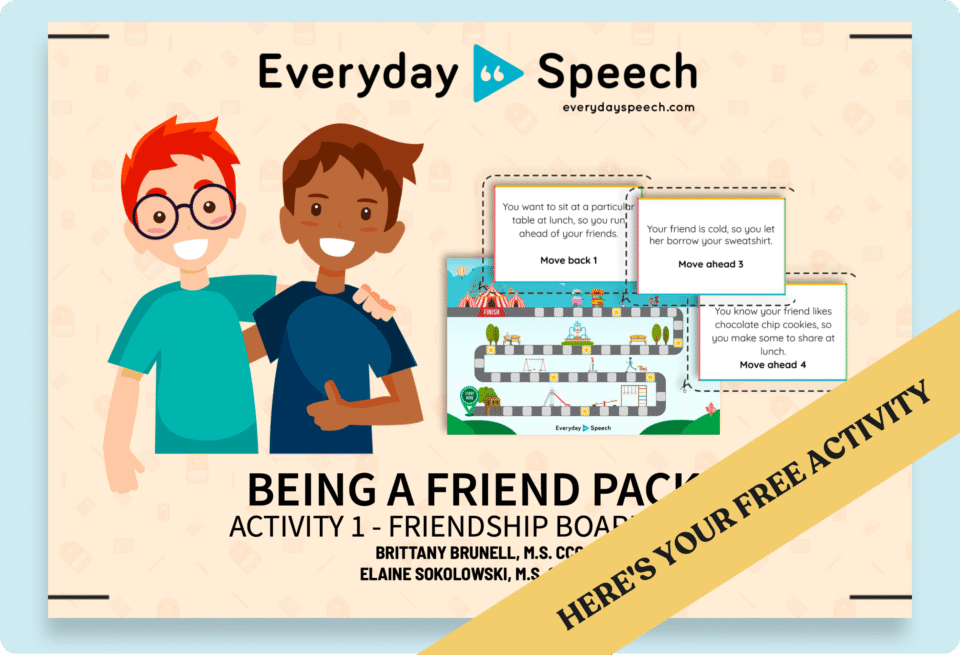Teaching PreK Students How to Join a Group: An Engaging No-Prep Activity
Get free social skills materials
No-prep lessons on self-regulation, emotional recognition, conversation skills, and more.
Sign up hereIntroduction
Joining a group can be a challenging task for PreK students, especially when they are learning how to navigate social situations. Educators can help students develop the necessary skills to join groups without disrupting ongoing conversations. This blog post will provide an overview of a no-prep activity that can be used to teach PreK students how to join a group, followed by discussion questions and related skills to explore.
No-Prep Activity
Here’s a simple, no-prep activity to help PreK students understand how to join a group without causing disruptions:
- Begin by gathering students in a circle and have them observe a group of pretend friends (use stuffed animals or dolls).
- Explain that one of the stuffed animals wants to join the group, but they have to do so without interrupting the conversation.
- Model the appropriate way to join the group by having the stuffed animal wait until there’s a pause in the conversation, and then gently ask if they can join in.
- Next, model an inappropriate way to join the group, such as interrupting the conversation or taking someone’s seat without asking.
- Discuss with students the differences between the appropriate and inappropriate ways to join the group, and why it’s important to respect others’ conversations.
- Allow students to practice joining the group with the stuffed animals, taking turns and providing feedback on their approach.
Discussion Questions
After completing the no-prep activity, use these discussion questions to further explore the concept of joining a group:
- Why is it important to wait for a pause in the conversation before joining a group?
- How can we show respect for others when we want to join their group?
- What are some ways we can tell if a group is too busy to join at the moment?
- How did it feel when the stuffed animal joined the group in an appropriate way? What about when they joined inappropriately?
- Can you think of a time when you joined a group successfully? What did you do?
Related Skills
Beyond joining a group, there are other relevant skills that can help PreK students develop strong social skills:
- Active Listening: Teach students to listen attentively to others, make eye contact, and ask questions to show interest.
- Respecting Personal Space: Help students understand the concept of personal space and how to maintain appropriate boundaries.
- Sharing: Encourage students to share toys, materials, and ideas with their peers, fostering a sense of cooperation and collaboration.
- Conflict Resolution: Teach students how to identify conflicts, express their feelings, and work together to find solutions.
Next Steps
Now that you have a better understanding of how to teach PreK students to join a group without disrupting conversations, you’re ready to put these concepts into practice. To help you further develop your students’ social skills, we encourage you to sign up for free samples of related materials at Everyday Speech. These resources will provide additional support and guidance as you continue to foster a positive and inclusive learning environment for your students.

